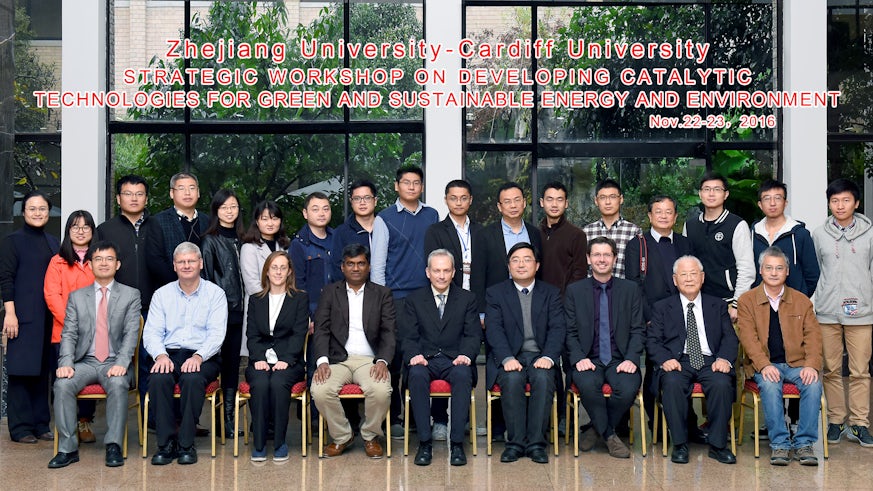EPSRC Global Challenges funds Cardiff-China Strategic International Workshop
6 December 2016

Scientists from the School of Chemistry and the Cardiff Catalysis Institute organised and attended a two day collaborative workshop at Zhejiang University in China this November. The event aimed to develop key strategic research collaborations to address key global challenges of air pollution, water pollution and clean energy.
Research staff from Cardiff University and Zhejiang University participated in the “Developing Catalytic Technologies for Green and Sustainable Energy and Enivornment” workshop, with additional contributions from the University of Nottingham – Ningbo and China HuaDian Electric Power Research Institute.
Professors Stan Golunski, Stuart Taylor and Phil Davies, Dr. Emma Carter and Dr. Sankar Meenakshisundaram from the School of Chemistry at Cardiff University presented their latest work on environmental catalysis, sustainability and understanding catalytic mechanisms.
Discussion focussed on specific problems in the areas of air and water pollution and strategies to produce clean energy. As part of this workshop, attendees visited Jianxing Power plant, where ultra-low emission standards have been achieved recently through new catalyst development.
Dr. S. Meenakshisundaram, who led the Cardiff team, said: “To address some grand challenges we need interdisciplinary, international teams working together and this workshop is an effort towards that. I strongly believe that this workshop is the starting point of a successful and long collaboration between Cardiff University and Zhejiang University”.
The workshop was funded by the Engineering Physical Research Council (EPSRC) under the Global Challenges Research Fund.
Cardiff University has established links with China, which have been further cemented by the recent signing of a partnership agreement between Cardiff and Xiamen University to increase collaborative research, share education best practice and create more opportunities for student and staff exchange.